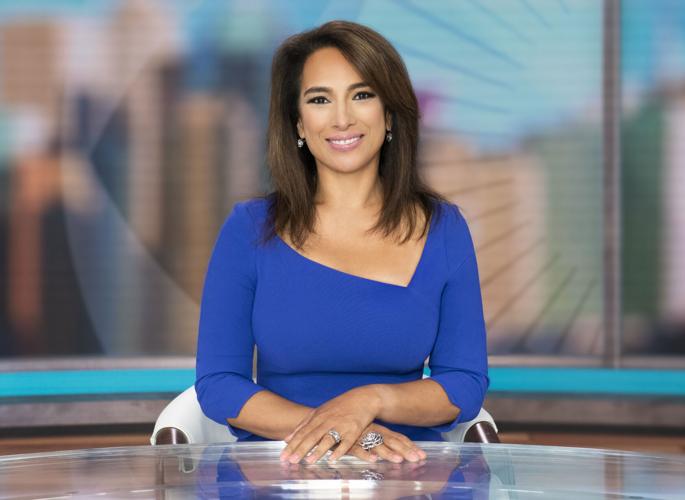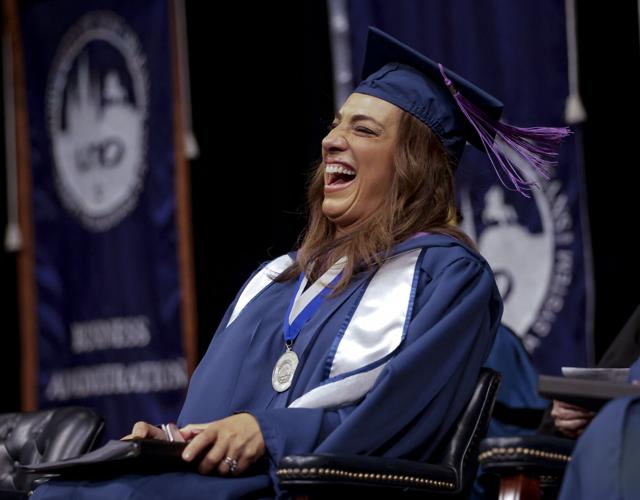“Where is my mother? Why did she leave me?”
Such questions haunted Michelle Miller as she was growing up in Los Angeles in the 1970s.
Miller, who would become a reporter and anchor on WWL-TV, New Orleans' first lady, cohost of "CBS Saturday Morning" and a CBS News national correspondent, didn’t lack for family. Her father was a married Black surgeon and Compton City Council member who had tried to help Sen. Robert F. Kennedy after he was fatally shot in June 1968.
Her grandmother, known to all as Bigmama, was not only her principal caregiver but also a stern but loving matriarch who looked after the entire neighborhood.
But as young Michelle saw her playmates go home to two-parent households, she said in an interview, she couldn’t help wondering why she didn’t have a mother.
Whenever she pressed her otherwise warm, loving father on this point, he became distant, speaking of himself and the woman with whom he conceived his daughter in the third person.
That, she said, led her to conclude correctly that the woman was White.
A brief, surprise meeting at her mother’s home, which her father engineered when his daughter was 9, was marked by tense exchanges between the grown-ups in another room.
Michelle’s mother, who had left her in a hospital nursery hours after giving birth, “clearly had not wanted to be with me,” Miller said.
And so things stood until Miller was 24 and her father was dying of prostate cancer. He told his daughter, “Go and find your mother,” and added, “She needs to know you.”
Writing her story
That empowered a quest that resulted in “Belonging: A Daughter’s Search for Identity Through Loss and Love” (Harper, $27.99), which is being published in March.
Miller will discuss her book during the Tulane Book Festival on March 10 at 10 a.m. on The Times-Picayune Stage in the Goldring/Woldenberg Business Complex.
For years, Miller’s yearning to see how she fit in was low-key. That changed in a big way in the summer of 2020, when the country was rocked by racial turmoil after the murder of George Floyd, a Black man, at the hands of White Minneapolis policemen.
Because Miller had covered racially charged incidents, a senior producer at CBS told her, “I want you to bring this perspective to what we’re seeing now,” she said in a telephone interview.
So she turned on her smartphone, and her story poured out.
'It has to be relevant'
“It was like God touched me,” Miller said. “It wasn’t unusual for me to share parts of my story, … but it has to be relevant. It was so relevant to this...
"Part of that moment was to let people know that we all come to the table with a lens. You see things differently from the ways other people do.”
She told her story on “CBS Mornings.” Within an hour after the show went off the air, Miller said, “a publisher from HarperCollins emailed me and said, ‘I was floored by your story, and I believe that’s a book.’”
Her collaborator was Rosemarie Robotham, an editor, writer and book coach. The women’s styles meshed flawlessly, Miller said, because while Miller has spent her career writing relatively short pieces for television, Robotham urged her to dig deeply to share her emotions — something that journalists are taught to shun in favor of dispassionate reporting.
Consequently, Miller said. “I had a partner who gave me the focus that I don’t think I would have had otherwise.”
'Dream. Become'
The toughest work, she said, came when she was writing about her encounters with her mother, including a tense session when Miller introduced her to Miller's husband, former New Orleans Mayor Marc Morial, now National Urban League president, and their two children.
Even though she was never more than civil to her daughter, Miller promised never to name her. In the book, she is called Laura Hernandez; Miller said in the interview that she doesn’t know whether she’s still alive.
She has moved on. “There are circumstances at birth,” Miller said. “You do not need to have them define the person you can be.
“Dream. Become. You can create your life. You may not be a billionaire, but you can be successful and helpful.”
Miller also will interview former U.S. Attorney General Eric Holder on March 9 at 5 p.m. in McAlister Auditorium.
The book festival, which will be held on March 9-11 on Tulane’s Uptown campus, is free and open to the public. A schedule is available at bookfest.tulane.edu.


